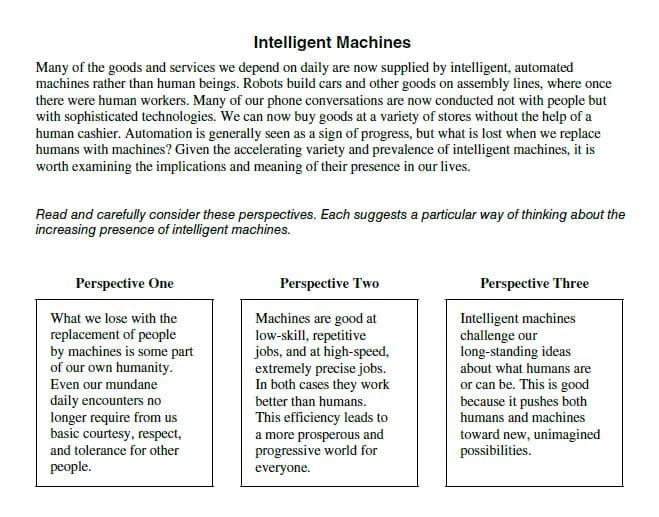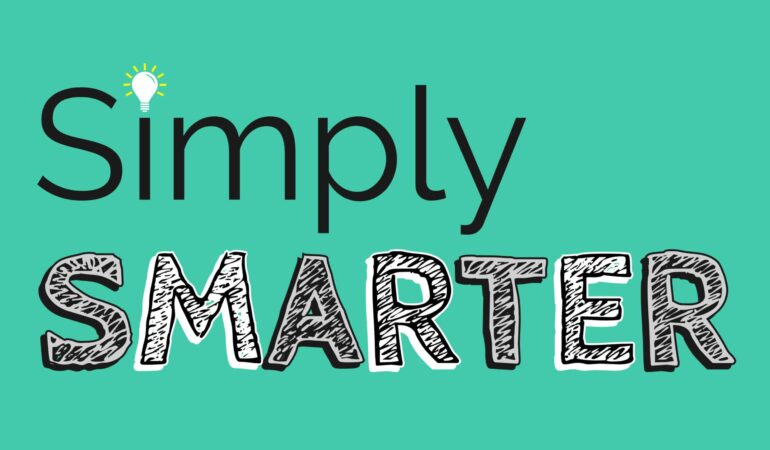Common App Essay Update
If there is one thing the pandemic has taught nearly everyone, it’s that there is room in your life to focus on other people. Be outward focused. Get groceries for your elderly neighbor. Self-isolate if you’re feeling sick. Be nice and say kind things to others. Reflect on what you can positively do for other people and be thankful for what others do for you.
Common App has certainly taken this into consideration when creating a new essay prompt.
“Reflect on something that someone has done for you that has made you happy or thankful in a surprising way. How has this gratitude affected or motivated you?”
They retired the seldom used option about solving a problem.
Here’s what Common App President & CEO Jenny Rickard has to say, “Particularly at this challenging time, we can help students think about something positive and heartfelt in their lives,” she explains. “And we can do it explicitly.”
Below is the full set of essay prompts for 2021-2022.
- Some students have a background, identity, interest, or talent that is so meaningful they believe their application would be incomplete without it. If this sounds like you, then please share your story.
- The lessons we take from obstacles we encounter can be fundamental to later success. Recount a time when you faced a challenge, setback, or failure. How did it affect you, and what did you learn from the experience?
- Reflect on a time when you questioned or challenged a belief or idea. What prompted your thinking? What was the outcome?
- Reflect on something that someone has done for you that has made you happy or thankful in a surprising way. How has this gratitude affected or motivated you?
- Discuss an accomplishment, event, or realization that sparked a period of personal growth and a new understanding of yourself or others.
- Describe a topic, idea, or concept you find so engaging that it makes you lose all track of time. Why does it captivate you? What or who do you turn to when you want to learn more?
- Share an essay on any topic of your choice. It can be one you’ve already written, one that responds to a different prompt, or one of your own design.
If you have “extra” time in the summer or on the weekends, take a look at the essay prompts and start thinking of your response. Once you’ve thought about it, quickly jot your thoughts down. From there, take a few more minutes to mindfully construct a paragraph. Once it’s time to sit down and write your essay, you will already have a good portion of the essay already written. After that, it’s only a matter of fine tuning before you have a beautifully written essay.
If you need help crafting a well written essay, our college experts are here to help. Learn more about college essay writing here.
Should I Take the Writing Portion?
Should I take the Writing portion of the ACT?
In short, the answer is yes. The idea of adding another 40 minutes to an already lengthy test isn’t ideal, but we have a few reasons why you should always take the Writing portion of the ACT.
Let’s go over what the Writing portion covers. The Writing prompt provides you with some options, or perspectives on a question. The task is to analyze the perspectives and provide your own point of view based on the three presented to you. The prompts are geared more towards broader social issues, such as taxing or not taxing unhealthy foods, or the usage of intelligent machines replacing a human’s job or not.

The Writing portion is 40 minutes long, giving you time to read, analyze, and incorporate the perspectives into your essay plan. This portion is based out of 12 points that is not rolled into your overall composite score.
Now that we understand what the Writing portion entails and what is expected, next we will give you a few reasons why it’s important to always take the Writing portion.
Reason #1
Many colleges and universities require this section of the ACT. This section is optional, but a student can’t go back and only take the Writing portion of the test, they would have to retake the entire test and include this portion as well. So, an extra 40 minutes tacked on to the end of the test is much more appealing than retaking the entire test! Take a look at your college list and see if they require this section or not.
Reason #2
Every essay is unique. Everyone has a different point of view and a different take on the essay. Voice your opinion! Keep in mind, you will still need to develop a position, include appropriate examples, organize points, and manage your time carefully. Make sure to indent your paragraphs, keep your writing neat, and minimize your spelling and grammatical errors.
Reason #3
It’s just another essay. Don’t work yourself up too much about it. Think through a strategy to prepare for test day. You’ll want to incorporate some specific perspectives and analyze the quality of the argument. When you are prepared and ready, you will most likely feel more confident and that will reflect in your essay.
If you simply don’t feel prepared and ready to take this section of the ACT, we can help. Our ACT Prep Course as well as Private Tutoring cover the Writing Portion of the test. Our tutors are invested in each student and want you to get the score you need for the school you want.
New Year’s Resolutions
New Year’s Resolutions
Everybody has them, but how long do they keep them? New Year’s Resolutions are pretty standard for most people. Everyone who makes them is bound and determined to keep their resolutions for the entirety of the year. However, if you ask those same people how their resolutions are coming along in June or July or even as early as March, I bet most of those people wouldn’t remember what they wrote down on January 1st.
We have good news. Depending on what your resolutions are, we can help you! At Get Smarter Prep, our passion is helping students learn. Whether that means increasing your overall ACT composite score, learning how to study better and more effectively, or to be accepted into your dream college. Whatever your goals are this year, our tutors are here to help.
With so many different ACT/SAT test dates, the first step is to determine which test date is right for you. The ACT has test dates in February, April, June, July, September, October, and December. The SAT has test dates in March, May, June, August, October, November, and December. Get Smarter Prep starts prepping for these test dates usually 8-10 weeks before the test. Look at your schedule and see which test date is best for you. Be sure to factor in extra-curricular activities, finals, work schedules, etc.
Maybe your goal for this year is to become an overall better student. We offer Study Skills Tutorials that will help identify your learning style and apply that information to all of the areas you need for high school and beyond. The skills can include role taking, general test preparation, homework planning, etc. Within these tutorials, students spend time building their reading comprehension, developing writing skills, and, of course, learning strategies and techniques for TIME MANAGEMENT – perhaps the biggest obstacle in achieving student success. We will help you learn to perform better in school, all while having less stress because you have a plan of action.
For many high school Juniors, college is right around the corner. Are you prepared? Don’t be overwhelmed with the mounting list of to-do’s when it comes to the college admission process. We have counselors who will guide you through the process. From finding a major or career your interested in, to helping you create and fine tune a college essay, to building a college list that’s right for you. Get Smarter Prep has you covered.
Let us help you keep your New Year’s Resolution throughout the entire year! Our Tutors will help you maintain those goals from the beginning of 2019 to the end.
Making A Great Persuasive Essay
Nerves abound as the teacher walks through the room. Every student waiting anxiously, stirring in their seats as names are called out one by one. Finally, your name is called; stiffening as your paper lands on your desk, you gasp. One glance at all the red ink and your heart sinks; the essay you spent all night writing barely resembles the original copy. You think to yourself, “But I tried so hard. What did I do wrong?”
This story can be echoed by students across the country. Whether you are answering an ACT or AP test prompt, or submitting a college scholarship essay, persuasive writing is not about trying hard but understanding how to craft an effective argument. There are several common mistakes that are easy to fix.
-
Planning the Essay
Too often students are given a prompt, brainstorm a few ideas, then begin writing. To really plan an essay you need to figure out more than just your thesis statement. A good plan should include how you are going to defend your thesis, what arguments others might pose and how to counter them, and what evidence you will use to support these claims. With a good plan the essay can almost write itself. All you need to do is link the arguments together.
-
Supporting a Claim
What is the difference between a claim and evidence? While most people can articulate the difference, these often become muddled in essay writing. A claim is a statement that presents a perspective and a belief on a certain subject. Evidence is a factual statement that provides support for a claim. For example, If I stated that M&Ms are the best candy, few people would accept it. However, if I provide concrete evidence I can give weight to this claim. But evidence can have varying strengths. Good evidence can look like this: “Fox News reported that M&Ms sold the most units and were the highest revenue generating chocolate candy in America for 2017.” This evidence has a strong source, provides a metric for comparison, and covers a large sample size. By leaving any of these out the evidence loses credibility and effectiveness. Let’s see what bad evidence would look like: “Mr. Johnson’s fourth grade class voted M&M’s as their favorite candy”. This extreme has very little credibility, a tiny sample size, and provided no metric for comparison. Just remember, whenever you make a claim it needs good evidence to support it.
-
Understanding Perspectives
Trying to make an essay stand out can be hard. But one surefire way to catch a grader’s eye is to show understanding of what drives different perspectives. By arguing against the emotions or motivations of counterpoints you can move past just responding to a prompt and start providing real insight. Anyone can rewrite a prompt in their own words, but few are able to dissect that prompt and move past just regurgitating the same old lines.
All these things can bring strength and life to your essay writing that might be missing in your peer’s. This is not about changing your style of writing, merely approaching your essay differently. Focus on writing clearly with sound arguments and you will see a lot less red ink marring your essays.
The ‘Perfect’ College Essay
You’ve probably heard or read about Delaware high school senior Brittany Stinson’s much-lauded Costco-themed college admissions essay. Stinson was admitted to Yale, Columbia, Penn, Dartmouth, Cornell, and Stanford, among other schools. That impressive list of acceptances and her unique and clever essay have combined to form some tantalizing headlines:
This Essay Got a High School Senior into 5 Ivy League Schools and Stanford
Essay about Love for Costco Wins Student Admission to Five Ivies
An Essay about Costco Hot Dogs Got This Girl into 5 Ivy League Schools
Poetic Costco College Admissions Essay Gets Student into Stanford, Yale, Columbia and Cornell
With little mention of Stinson’s other qualifications, at first glance it seems the essay was her golden ticket. The magical essay that gets you into any school you choose? It’s a tempting vision. It’s also unrealistic.
In a Business Insider article titled “Ex-Ivy League admissions officers dissect an essay that got a girl into 5 Ivies and Stanford,” the author notes that the ex-admissions officers in question “prefaced their remarks by clarifying that an admissions essay on its own cannot achieve an acceptance into an elite school, and that stellar academics and other extracurriculars must accompany an essay.” [emphasis added] That clarification, however, doesn’t stand out next to the plethora of headlines claiming the essay’s singular power in winning acceptances.
The mythic power of the Ideal Essay is compelling and terrifying at once. It entices applicants with possibilities and frightens them with the dark specter of the fate of students whose less-than-Nobel-winning essays ruined everything, forever.
William K. Poirot writes about this phenomenon in his introduction to 100 Successful College Application Essays:
“I know of college studies in which 3 percent of the essays helped the applicant, 2 percent hurt the applicant, and the other 95%, while perfectly respectable, had no effect whatever on the admissions decision. Yet I have seen even good writers crippled by the pressure they put on themselves to write a great essay, one that will get them admitted…. Don’t set out to write the perfect essay, the one with a huge impact, the one that will blow the doors to the college open to you. It just doesn’t happen very often. It is largely a fantasy….”
Writing can be powerful, and the shimmering vision of the Ideal Essay is understandably appealing. An essay on its own won’t get you admitted to your top choice school. The purpose of an essay is to provide some personality to illustrate otherwise lifeless lists of accomplishments – grades, scores, awards, service hours. Stinson did a lot of things right in her essay. She used strong verbs and clear descriptions. She began with a compelling first sentence. She links her story about Costco to the story she’s telling about herself and the kind of person she is. These are all important elements.
But even her essay isn’t perfect. No one’s is. (One of those ex-admissions officers said of Stinson’s essay, “I don’t think this is one of the best essays I’ve seen… [T]here was an opportunity missed here to tell us much more about herself…I can only assume that the rest of her application is truly stellar….”) The evaluation of the essay is subjective, so what seems outstanding to one admissions officer may seem less stellar to another. That’s all the more reason to tailor the essay to the person it should reflect – you.
Stinson shared one piece of advice that is a good takeaway for anyone thinking about college essays. “Before I even started writing an essay, I read a quote from an admissions officer that said if your essay is on the ground and there is no name on it and one of your friends picks it up, they should know that you wrote it.” Does that mean you’ll get into Stanford? No, but it does help ensure that your essay will do its job, which is to give the admissions reps a peek at the person behind the application.
Interested in developing your ‘perfect’ College Essay?







